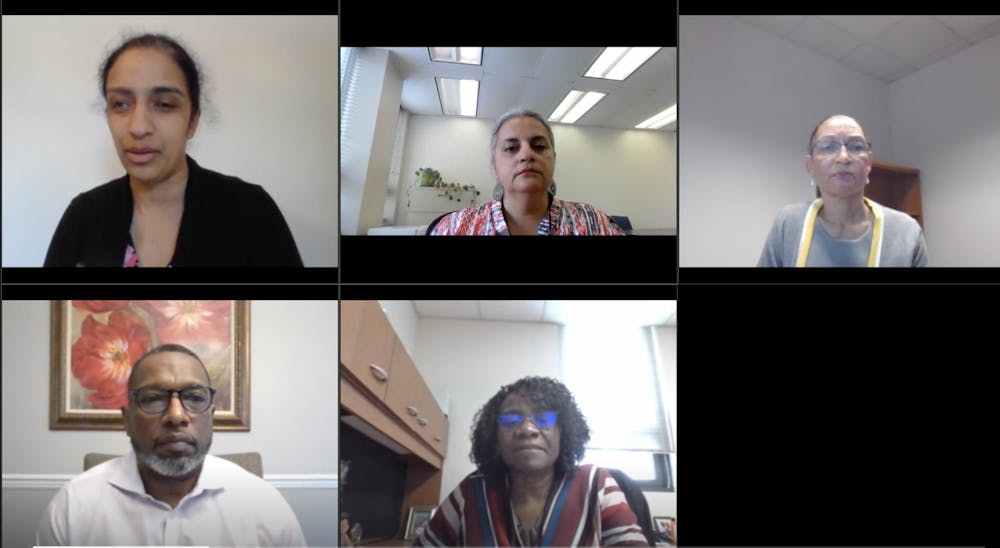At the summit, HBCU staff said that they have witnessed the pandemic taking a toll on students' lives and mental health, even after two years.
“I've seen a totally big jump on trauma with our students and, of course, grief,” said Aishia Griffin, director of Counseling Services at Bennett College.
The pandemic has caused financial difficulties, and some students have had to act as caregivers and providers for their families on top of school work, Griffin said. She added many students have lost family members because of COVID-19.
“What COVID has done, in my opinion, and my view, is it exacerbating all of that, it just really pushed everything out to the forefront,” she said.
Fayetteville State University Master's of Social Work Director Beverly Edwards said isolation and remote learning significantly affected students' social skills, academic performance and community connections.
“Human beings are social creatures by nature," Edwards said. "That's who we are, right. We have to be able to talk and lay hands.”
NCDHHS Secretary Of Health and Human Services Kody Kinsley said there has been an increase in anxiety and depression during the pandemic that's affected African Americans more than their white counterparts.
According to a February 2021 study published by non-profit Kaiser Family Foundation, non-Hispanic Black adults and Hispanic or Latino adults were more likely to report anxiety and depressive disorder symptoms than non-Hispanic whites.
Additionally, from access to healthcare to housing, the pandemic has worsened existing issues that have disproportionately affected the health outcomes for people of color across the country.
Solutions proposed
Medicaid, substance abuse treatment, accessible counseling, therapy, reentry efforts for incarcerated people and suicide prevention programs were mentioned by NDHHS leaders as existing efforts to address mental health disparities.
Terrell Richardson, a second-year master's student at North Carolina Agricultural & Technical State University, said addressing stigmas around mental health, particularly amongst the Black community, is the first step in improving conditions.
To get the day's news and headlines in your inbox each morning, sign up for our email newsletters.
“I really think the way to increase Black folks coming into the field of mental health is really by tackling that stigma around mental health," Richardson said.
Jimmy Chambers, student body president at ECSU, said professors must get students' minds off of the pandemic by ensuring their classes are engaging and by developing strategies to get students out of their rooms.
“At the end of the day, this is not the normal collegiate experience...so just encourage your students and let them know like, 'Hey, I know right now is not an easy time, but I'm still proud of you for trying to continue your education and you're not giving up,'" he said.
Chambers also said that greater funding will allow for people from marginalized communities to have more access to the resources that they need.
Jody Grandy, director of Student Counseling Services at ECSU, said the school's campus has utilized social media to educate students on the campus’s mental health resources and counseling centers.
Still, she said, that a lot of students are unwilling or fearful to get help even if they do have access to it.
“We have to be creative in looking at our population," Grandy said. "It’s not a one-size-fits-all.”
She and her staff are working to meet students where they’re at. She questioned what to do if a student is not ready for counseling, saying it takes an understanding of mental health, empathy, and patience to help someone without thinking their issues have an immediate solution.
“It’s not mental illness — it's more mental wellness," Grandy said. "Let's talk about you being well. Let's talk about you being successful.”
@grantalxandr
@DTHCityState | city@dailytarheel.com | elevate@dailytarheel.com



